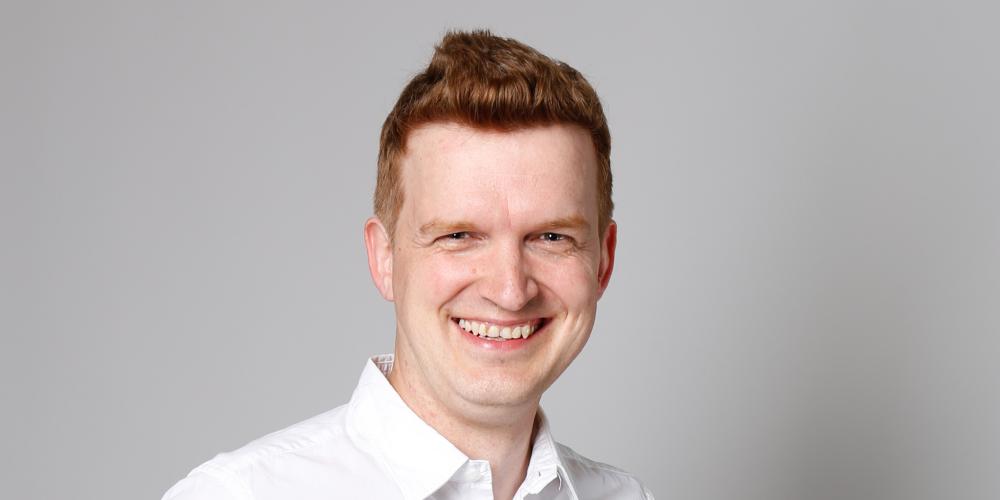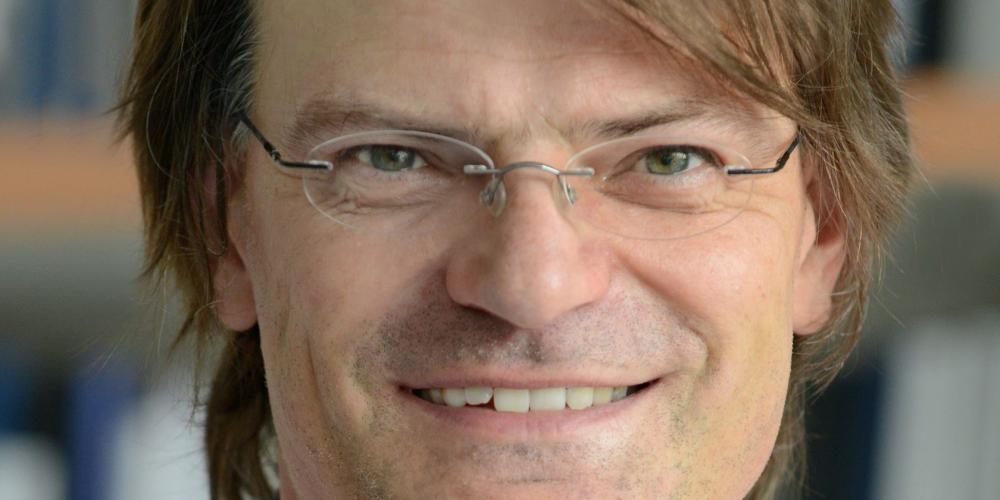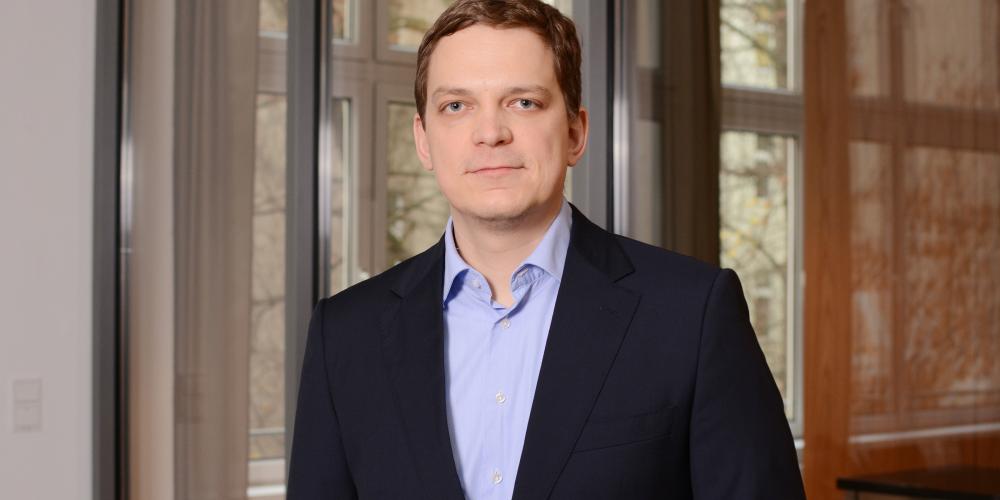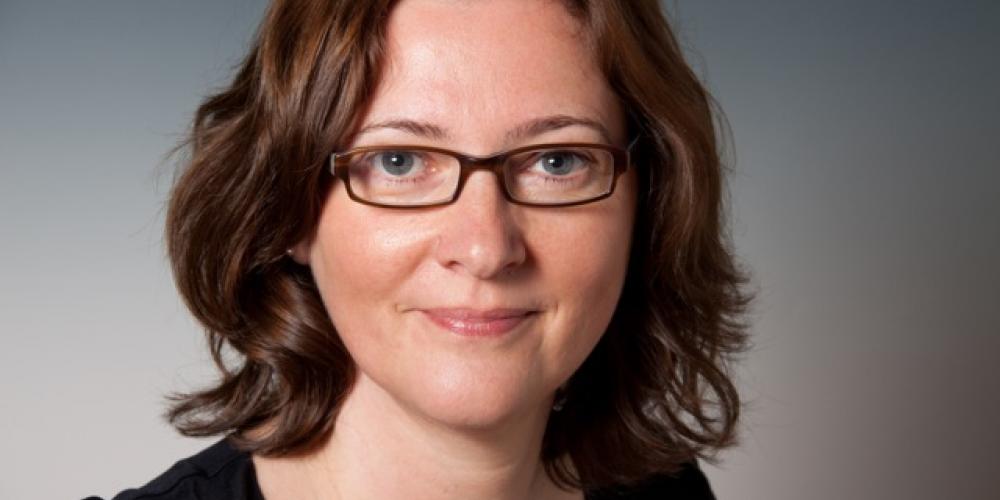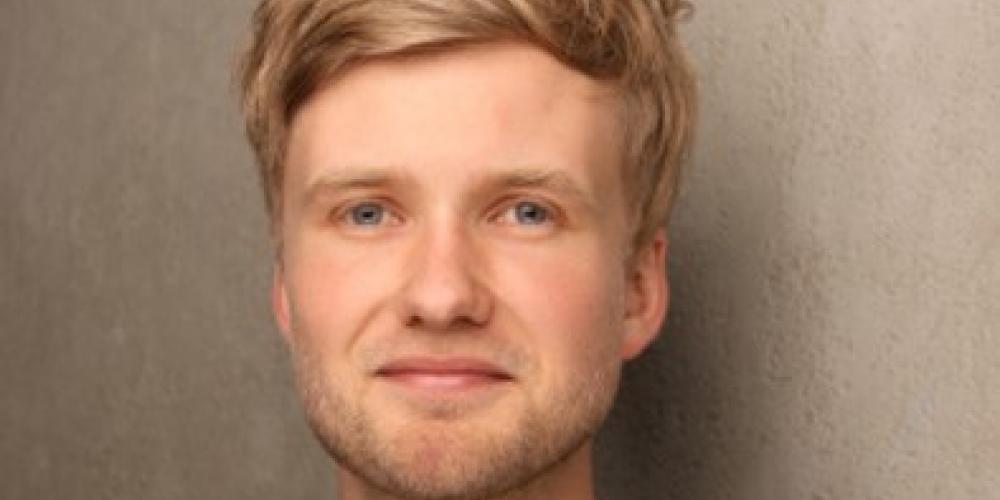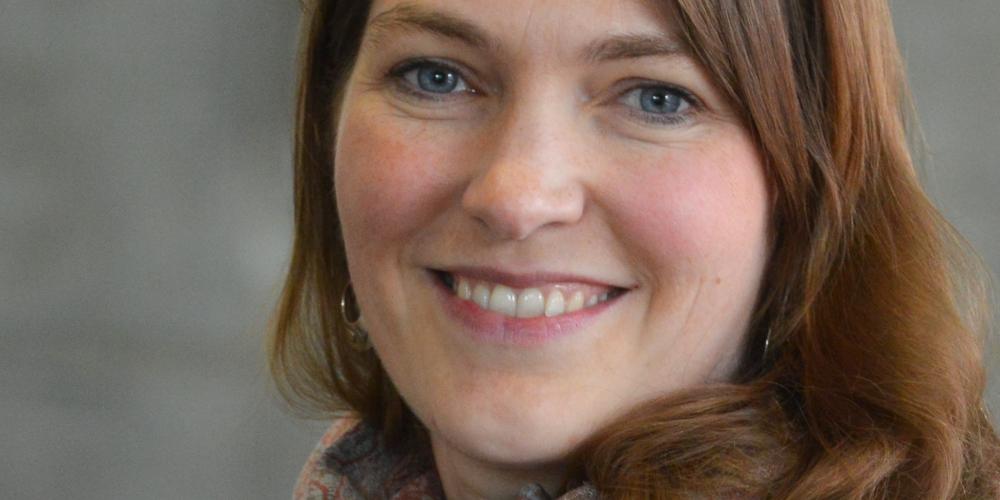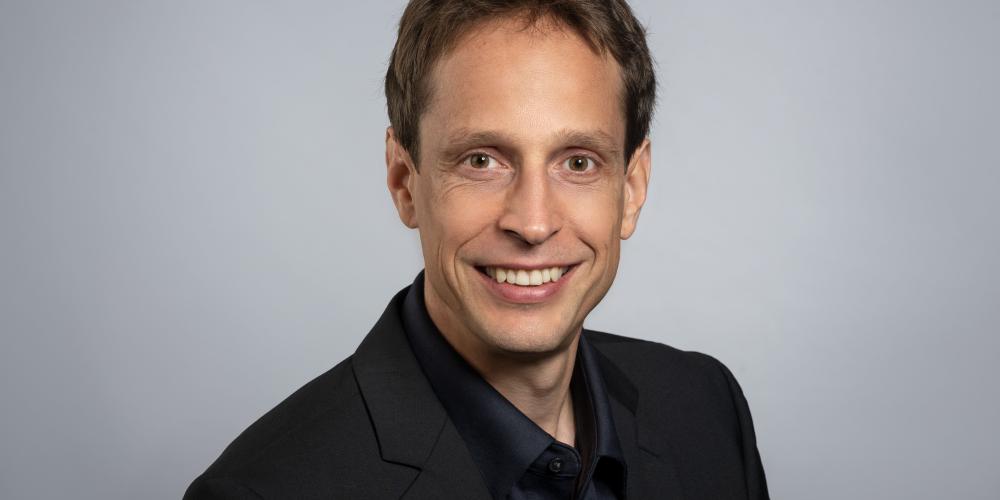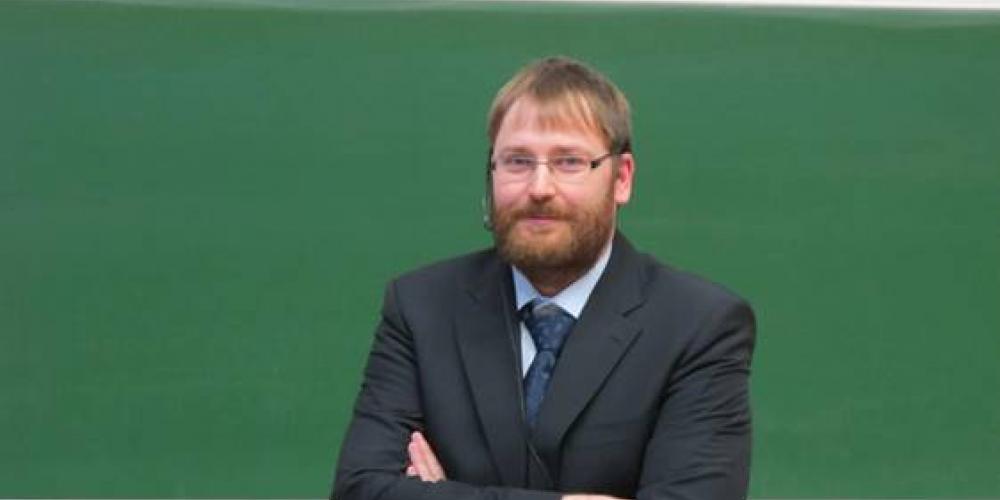Continuing Education / Lifelong Learning
Dr. Lilge, founder of gamelab.berlin, is working on the conception and implementation of digital and analog learning and experience offerings that use playful elements to generate continuous motivation throughout the entire period of use. Examples of such offerings include serious games, i.e., serious games that pursue specific learning objectives; gamified apps, i.e., applications that contain playful aspects; digital and analog exhibits; and immersive room design that immerses the user in a captivating experience. The goal is that people, through these interactive and engaging learning methods, will be motivated to expand their knowledge and actively engage with the content. In addition to his work as a researcher on the cultural technique of games, he advises companies and organizations on the topics of gamification and human focused design.
- Conception and testing of digital prototypes
- Consulting on interdisciplinary innovation projects
Twiddle - mobile game for 8 research museums of the Leibniz Association
Polarstern 360° - Virtual and Augmented Reality Exhibition at the Bremerhaven Maritime Museum
Snapture - mobile game for teaching image literacy for the Bode-Museum Berlin
Mein Objekt - playful knowledge transfer for e.g. Humboldt-Forum Berlin, Badisches Landesmuseum, a.o.
Gamification Expert Level 3 of the Engagement Alliance and
certified Octalysis Framework user
Professor Zender and his team at the Chair of "Didactics of Computer Science | Informatics and Society" work on a wide range of topics related to educational technologies, the teaching methodology of computer science and socio-technical systems. He focuses on the use of immersive technologies such as virtual and augmented reality in teaching and learning settings. His activities concentrate on the design and development of such VR and AR systems. In his projects, Professor Zender always collaborates with a wide network of interdisciplinary partners from the fields of computer science, media didactics, media pedagogy and various other.
In addition, Professor Zender is the deputy speaker of the specialist group on educational technologies of the German Informatics Society (GI) and initiator of the GI working group on VR/AR-Learning.
- Consulting on the use of educational technologies in concrete teaching and learning settings
- Conception and development of learning-effective applications with virtual and augmented reality (VR/AR)
- Conducting lectures and training courses on the topic of "Teaching and Learning with VR/AR"
- Cooperation with companies and research institutions from vocational education and training: conception and development of teaching/learning systems, realisation of transfer events
- Cooperation with training institutions from the automotive industry in particular: development of VR simulations for training purposes
- Cooperation with companies from the IT sector (e.g. providers of learning systems): design and development of teaching/learning systems
- Cooperation with scientific institutions (universities, private research institutions, etc.): implementation of research projects, scientific events and transfer activities as well as community work
Teaching and Learning with Virtual and Augmented Reality
City of Munich
vhw Bundesverband für Wohnen und Stadtentwicklung (Federal Association for Housing and Urban Development)
FGW - Forschungsinstitut für die gesellschaftliche Weiterentwicklung (North Rhine-Westphalia)
CBRE
Prof. Nuissl is concerned with the development of cities and regions. He investigates the growth of cities and settlement areas, dynamics on the housing market (esp. displacement processes) as well as the development of city districts and neighborhoods. In addition, one focus of his work is the analysis of municipal planning and policy processes. As a member of the Integrative Research Institute on Transformations of Human-Environment Systems (IRI THESys), Prof. Nuissl has excellent interdisciplinary connections in his field of research.
- Contract research (qualitative and quantitative social science methods)
- Expert reports
-
City of Munich: Case Study on Displacement Processes in the Housing Market and Derivation of Urban Policy Implications (https://www.muenchen.de/rathaus/Stadtverwaltung/Referat-fuer-Stadtplanu…)
-
vhw Bundesverband für Wohnen und Stadtentwicklung (Federal Association for Housing and Urban Development): Study on the change of local political cultures in a polarized society
-
FGW - Forschungsinstitut für die gesellschaftliche Weiterentwicklung (North Rhine-Westphalia): Study on the integration of migrants in the neighborhood (https://www.fgw-nrw.de/forschungsergebnisse/forschungsergebnisse/projek…)
-
CBRE: Data collection on student housing in Germany
-
IRI THESys - Integrative Research Institute on Transformations of Human-Environment Systems at the Humboldt University of Berlin
Accor Hotels Germany
SHS VIVEON realisation of training for interviewers
International executive headhunting company: development of customised personality test
Prof. Ziegler's expertise and that of his team lies in the field of psychological diagnostics and deals with all topics of personnel diagnostics in the HR life cycle. They focus on personality, intelligence and situational awareness. Ziegler and his team develop solutions to measure these in relation to requirements and to use them for performance or learning prediction. Therefore they use the full range of qualitative (e.g. interviews) and quantitative methods (e.g. tests, questionnaires, machine learning).
Prof. Ziegler has already carried out several successful projects with well-known companies in this area, involving the creation of competency models, employee surveys, annual appraisals or job aptitude diagnostics. Prof. Ziegler's working group also trains individuals or teams on topics of personnel diagnostics (e.g. assessment centers or interviews). In addition, Prof. Ziegler develops customized diagnostic processes or evaluates them.
- PC lab with 10 workstations and various performance and personality tests
- Online surveys
- Data analysis
- Consulting
- Trainings - wide range of topics
-
Competence model development - Prof. Ziegler and his team have developed competence models for different professions for various clients and made them measurable
-
Accor Hotellerie Deutschland GmbH: Development of competence models
-
SHS VIVEON AG: Implementation of interviewer trainings
-
International headhunting company for executives: Development of a customized personality test
-
Evaluation and optimization - In these projects Prof. Ziegler looks at existing personnel processes, evaluates their quality from a psychological point of view and develops optimizations.
Professional School of Education (PSE), Interdisciplinary Centre for Educational Research (Interdisziplinäres Zentrum für Bildungsforschung, IZBF), Humboldt-ProMINT-Kolleg
The research-based didactics of biology – the science of teaching and learning of biological contents and methods – is essential for the education and training of biology teacher students. One focus area of Prof. Upmeier zu Belzen’s work is the modelling and measuring of competencies in scientific methods for acquiring and consolidating knowledge of pupils, students and teachers. Her team applies qualitative and quantitative methods of empirical social research. Prof. Upmeier zu Belzen conducts experimental intervention studies to test the effectiveness of support frameworks regarding diagnostic capabilities and the ability to convey knowledge of (prospective) teachers as well as the effectiveness of different educational activities offered to pupils. The transfer of the results into academic practice is supported by relevant publications as well as by trainings for teachers and school administrations.
- Substantial collection of didactical media for teaching and learning biology of the Department of Biology
- Hard- and software for video studies
- Eye tracker
- Assessment of teachers’ (school and university) competencies to acquire knowledge
- Professional School of Education (PSE): as a central institute the PSE is a cross-faculty liaison of education, school and teaching research. The PSE is both a teaching and research unit. Its main focus lies on the education of teachers under the conditions of heterogeneity, and on issues relating to the promotion of the gifted and talented.
- Interdisciplinary Centre for Educational Research (Interdisziplinäres Zentrum für Bildungsforschung, IZBF): the centre’s main function is to examine questions of research on education, theoretically and empirically, and to present and transfer the results to improve educational systems, processes and activities in Germany as well as internationally.
- Humboldt-ProMINT-Kolleg: structural unit comprising the so-called MINT subjects (mathematics, informatics, science and technology, comparable to STEM) in all German types of schools and the related transitions, established to develop new techniques of teaching and learning. The unit is sponsored by Deutsche Telekom Stiftung and collaborates with PSE and IZBF. Participating teachers and students complete an internship in companies or institutions in Adlershof in order to learn about value added chains from basic research to high-tech production.
- Humboldt Bayer Mobil: joint project with the Bayer Science & Education Foundation to promote academic education and to ignite curiosity and enthusiasm for science and research in pupils in grades 5 through 8. This project provides insights in research practices at universities and the private sector, which also supports career prospects in the areas of science and technology.
Prof. Pinkwart’s research group investigates a range of topics including adaptive educational technologies, computer supported collaborative learning, computer science education methods (especially in the fields of programming and modeling), social media and cooperative systems, and socio-technical systems. In addition, they develop multimodal human-computer interaction methods using interactive surfaces, mobile devices and 3D technologies. Prof. Pinkwart is a well-known member of numerous national and international committees and projects in basic and applied research. His team can offer specialised expertise in computer-assisted education and training, especially in the field of mobile and ubiquitous learning and teaching scenarios, computer-based group learning methods, and adaptive mechanisms in e-learning. In this context, Prof. Pinkwart and his team realise numerous research projects and co-operate with several educational institutions and companies. Concerning socio-technical systems, Prof. Pinkwart’s team conducts research on issues of design, implementation and evaluation of group-oriented software applications (e.g. online communities).
- interactive table (multi-touch)
- electronic boards
- tablets (20x)
- co-operation with IT companies: consulting for didactical concepts applied to online courses in the fields of media production and e-learning
- co-operation with e-learning companies: formation of study groups in large online courses
- co-operation with automotive supplier: designing human-machine interfaces for production machines
- co-operation with automotive manufacturer: multimodal control concepts for car infotainment systems
As part of their scientific activity Dr Markus Krutzik and the team members of the.quantum.chapter have acquired an extensive amount of expertise in developing tailored quantum sensors - from key technology to subsystem and system level. Quantum optical sensors and optical clocks are used in high-precision inertial navigation, gravimetry and gradiometry or for the synchronisation of networks. Hence, they are central for navigating GPS-free environments, for geophysics, the exploration of natural resources, the monitoring of climate change, and for addressing fundamental questions of modern physics. Central to their research are compact and robust setups for optical spectrocopy, absolute frequency references, and ultra-cold atom based inertial sensors. For this purpose, the team developed lasers and optical systems for generation and manipulation of light, as well as control software and data management platforms. Their setups are not only operated in laboratory research: They are also used as in field or even in space. In addition to development, testing and operation of atomic quantum sensors, Dr Krutzik and the team gained expert knowledge in all stages of mission and system design, ranging from mission architecture and identification of requirements to system integration and qualification, as well as development of control concepts and data analysis. In addition to Humboldt-Universität zu Berlin Dr Krutzik is also associated with Ferdinand-Braun-Institut, Leibniz-Institut für Höchstfrequenztechnik.
- Methods for the design, development and testing of compact, robust and tailored quantum sensors - from component to system level
- Identification of critical technologies and construction of prototypes
- Workshops and seminars
Dr. Krutzik is also part of "The Quantum Chapter" team, which provides workshops, training, prototyping, and consulting around the topic of quantum technology.
Prof. Hoppe’s research is focused on Occupational Health Psychology (OHP) especially on the analysis of work activities to maintain employee health and performance as well as to provide learning and development opportunities. OHP integrates occupational and health psychology with occupational medicine and traditional labor safety, which is insufficient for today’s flexible employment situation. Prof. Hoppe also examines the psychosocial characteristics of a specific workplace, e.g. work requirements or the level of influence on and control over tasks as well as the social working environment. She also studies the effects of these characteristics on employee health and his/her well-being. She investigates how psychosocial work characteristics influence an employee’s motivating factors like job satisfaction and commitment. Particular attention is paid to the situation of migrant and low-skilled workers and the analysis of the impact their workplaces and work environments may have on their health and well-being. Moreover, Prof. Hoppe studies multi-ethnic and -lingual workforces and the effects of diversity on employee health.
- risk assessment methods for workplace conditions
- employee surveys regarding the promotion of health at workplace
- interventions to promote health at work
- postal operators, logistics companies, professional care providers, manufacturing companies: execution of employee surveys to gather data on psychosocial strain and resources in the workplace and to analyse effects of stress, job satisfaction and work performance
- public institutions (e.g. universities, federal ministries), consulting companies, self-employed persons: development of health-related interventions and training sessions via mobile devices (e.g. smartphones, tablets) to facilitate recovery strategies and self-management
- Michel, A. & Hoppe, A. (2022). Handbuch Gesundheitsförderung bei der Arbeit: Interventionen für Individuen, Teams und Organisationen (1. Aufl. 2022 Aufl.). Berlin: Springer.
University of Zurich, German Chamber of Commerce and Industry (Deutsche Industrie- und Handelskammer, DIHK)
Prof. von Hippel and her team researches adult education and further training, and especially lifelong learning processes in adult education. In this context, they investigate institutions of general and professional further education and vocational training. The team has three special research interests. The first focuses on target groups and participant research. Prof. Hippel investigates why people take part in further education and what motivates them. Furthermore, she studies how people participate in further education. A second field of interest is on organisational research. The team investigates, for example, how different providers of further education develop their organisational structure over time and what kinds of trainings they offer for special target groups. Programme research is the third area of Prof. Hippel’s research. In this unit, the team explores the mechanisms that determine the setting of topics and how professional planning in organisations of further education is enacted. Unlike in schools, further education is not restricted by a set curriculum, but nevertheless content has to be negotiated and agreed on by different players. Existing programmes of further education reflect the demand to date, different interests and anticipated needs and are thus of interest for Prof. von Hippel’s research. For the last 20 years, the department has built up its own archive of further education programmes of Berlin-Brandenburg (Weiterbildungsprogrammarchiv Berlin-Brandenburg). It contains the further education programmes of over 500 institutions, accessible to scientific research and teaching.
- group discussions, focus groups and product clinics in the adult and further education sector (innovative method of market analysis for a target group oriented planning of training programmes)
- contract research in the area of further education (group discussions, surveys based on questionnaires and interviews, programme analyses)
- training for those employed in adult and further education (e.g. lecturers, programme planners, HR)
- several institutions of further education, amongst others for the unit for academic further education of the University of Zurich, German Chamber of Commerce and Industry (Deutsche Industrie- und Handelskammer, DIHK) and public institutions of further education: implementation of product clinics with the aim of target group oriented planning of training programmes for further education
- direction of a German Research Foundation Project (Deutsche Forschungsgemeinschaft, DFG) on the subject of planning of continuing vocational training: realisation of case studies in big companies
- several projects funded by the German Federal Ministry of Education and Research(Bundesministerium für Bildung und Forschung, BMBF) related to social milieus and further education: training of further education providers
- in co-operation with large companies and further education providers: supervision of academic theses
Professor Voelkle is an expert in Quantitative Psychology. He and his team work on the development and adaptation of new assessment procedures, the statistical and mathematical modeling of psychological processes, the design of studies as well as the analysis and interpretation of empirical-psychological data. Special emphasis of the research conducted at professor Voelkle’s lab lies on the analysis of longitudinal data and evaluation research. Professor Voelkle and his team are often involved as consultants in research and development projects in the education and health sector. To improve applied empirical research in the social and life sciences, they have founded the Berlin Methods Group in 2017.
Powerful computers and access to all common statistical programs
- Health: Evaluation and statistical advice for psychological-medical research facilities and health insurance companies
- Education: Evaluation and statistical consulting for private and public project executing organisations
TWT GmbH
At the Chair of Software Engineering, Prof. Grunske and his team specialise in methods of software technology relevant to the field of automated development and quality control of software systems. His work also involves probabilistic techniques on the basis of which the probable and less probable behaviour of a program can be modelled. This allows for easier discovery and correction of software anomalies. Such statistic models are used in the monitoring and debugging of programs during runtime as well as in testing software, which supports the development of safe and reliable software systems. Furthermore, Prof. Grunske develops methods that enable a precise definition of the quality requirements of software systems, the formalisation of verification conditions as well as the (technical) safety in embedded systems and process and performance management.
- Software engineering
- Testing and verification
- Statistics/probabilistic methods
- Formalisation of application scenarios in cooperation with TWT GmbH: “Safe.Spec: Quality control of behaviour requirements”
- Using software systems to derive probabilistic models that can be used as specification during the software engineering process: „EMPRESS: Extracting and Mining of Probabilistic Event Structures from Software Systems”
- Development of evaluation methods for probabilistic models as well as machine learning based techniques for the transformation of models: “ENSURE-II: ENsurance of Software evolution by Run-time cErtification”

